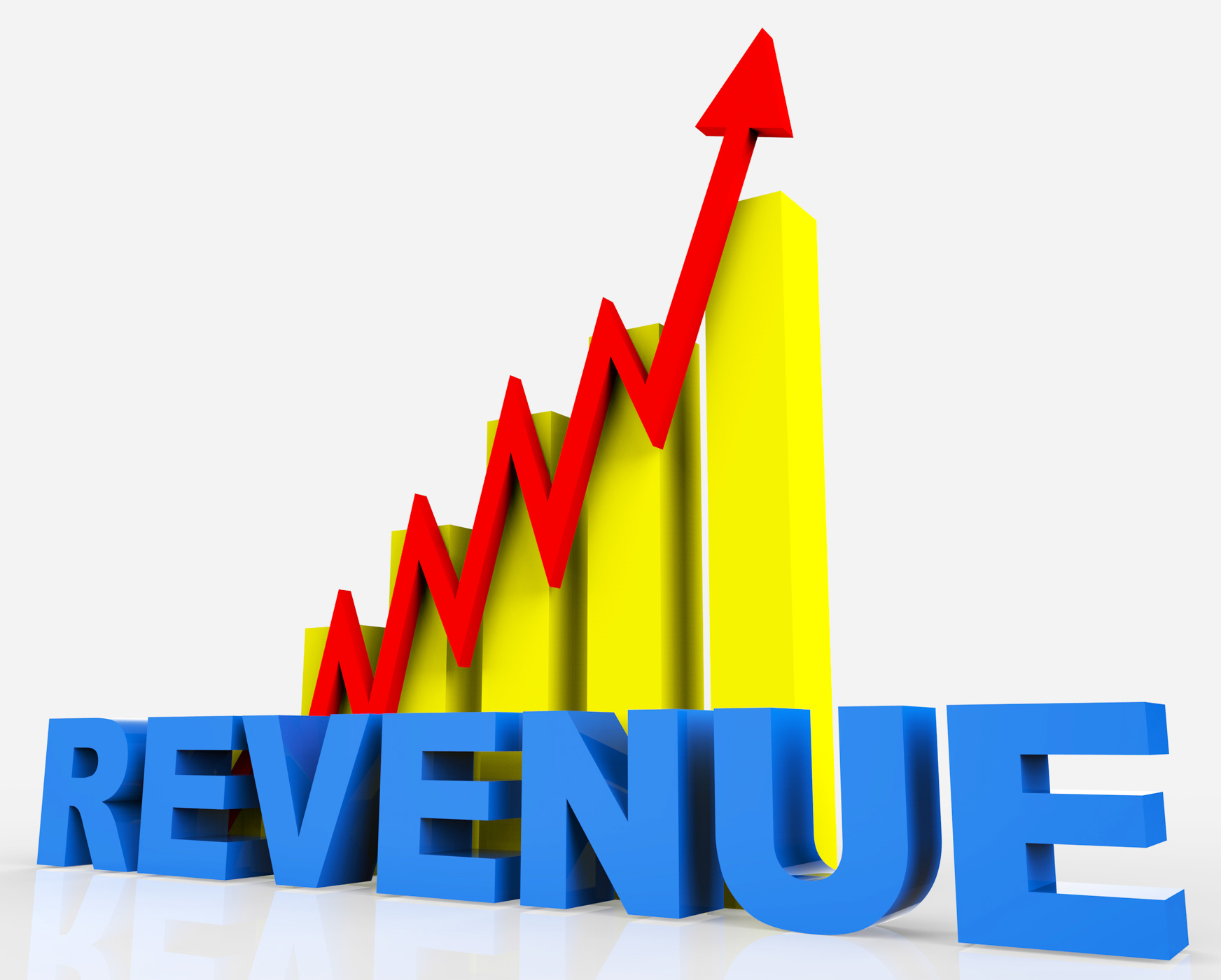What Is The Revenue Of Bagel Boss? Unpacking A Local Business's Financial Flow
Have you ever wondered about the financial workings of your favorite local spots, like a bustling bagel shop? It's a pretty interesting thought, especially when we consider places that have become a real part of the community. Understanding "What is the revenue of Bagel Boss?" isn't just about a number; it's about seeing how a business brings in money from all the delicious things they offer, and what that actually means for their daily operations and overall standing. So, it's almost a way to appreciate the effort that goes into keeping those fresh bagels coming.
When people talk about a business's revenue, they are, you know, essentially talking about the total money a company brings in from its regular activities before any expenses get taken out. For a place like Bagel Boss, this primarily means the money they get from selling all those tasty bagels, cream cheeses, coffee, and maybe even some sandwiches or catering orders. It's the "top line," as some financial folks say, because it's the very first number you look at when checking how much money is coming in, before you even think about costs. This concept, you see, is pretty straightforward when you break it down.
Figuring out the exact revenue for a private business like Bagel Boss can be a bit tricky since they don't usually share their detailed financial reports with the general public. However, we can certainly explore the various ways a bagel shop generates income and the factors that influence how much money they might bring in. This helps us get a better sense of their financial picture, rather than just guessing. It's a good way, actually, to think about how any food service business operates.
Table of Contents
- Understanding Revenue for a Bagel Shop
- Factors That Influence Bagel Boss Revenue
- How Bagel Boss Might Generate Other Income
- Exploring the Broader Picture of Business Income
- Frequently Asked Questions About Bagel Shop Finances
- Wrapping Things Up About Bagel Boss and Its Earnings
Understanding Revenue for a Bagel Shop
The Meaning of Revenue
When we talk about revenue, we're really talking about the money that comes into a business from its usual activities. For Bagel Boss, this is, quite simply, the total value of all the bagels, coffee, pastries, and other items they sell to their customers. It's what's often called the "top line" because it sits right at the very top of a company's financial statement, showing all the money that has come in before anything is taken out for costs. This income, you know, comes from what the business does every single day.
It's important to remember that revenue is different from profit. Revenue is the money brought in, while profit is what's left after all the expenses, like ingredients, rent, and employee wages, have been paid. So, a business can have high revenue but low profit if its costs are also very high. This distinction is, in fact, pretty important for anyone trying to get a clear picture of a business's health.
Main Ways a Bagel Shop Earns Money
A bagel shop like Bagel Boss has several primary ways it brings in money, and these are, for the most part, pretty clear. The biggest source, naturally, is the direct sale of food and drink items to individual customers who walk through the door. This includes all those fresh bagels, different types of cream cheese, coffee, tea, juices, and maybe even some breakfast sandwiches or lunch options. Each transaction, you see, adds to their daily income.
Beyond individual sales, many bagel shops also have other ways to make money. Catering services are a big one; businesses or individuals might order large quantities of bagels and spreads for meetings, events, or parties. This can be a really good source of income, as orders are often larger than what a single customer might buy. Some shops, you know, might also sell branded merchandise, like coffee mugs or t-shirts, which also contributes to their overall revenue.
Gross vs. Net Revenue for a Bagel Business
When looking at the money a business takes in, there's a difference between "gross revenue" and "net revenue." Gross revenue is the total amount of money received from all sales before any deductions. For Bagel Boss, this would be the sum of every single sale made over a period, without taking anything out. It's, basically, the raw total of all the money that comes in from customers.
Net revenue, on the other hand, is the money left after certain deductions are made from the gross revenue. These deductions might include things like sales returns, discounts given to customers, or, for some businesses, certain taxes tied directly to sales. So, if Bagel Boss gave a discount on a large catering order, that discount would be subtracted from the gross amount to arrive at a net figure. This distinction, you know, helps paint a more precise picture of the actual money the business gets to keep from its sales activities.
Factors That Influence Bagel Boss Revenue
Many things can affect how much money Bagel Boss brings in. It's not just about making good bagels, although that's certainly a big part of it. These factors, you see, can change quite a bit from day to day or season to season.
Customer Traffic and Sales Volume
The number of people who come into the shop and what they buy is, obviously, a huge factor in revenue. More customers mean more sales, and more sales mean more money coming in. Things like the time of day, the day of the week, and even the weather can really impact how many people decide to stop by for a bagel and coffee. A busy Saturday morning, for instance, will likely bring in much more money than a slow Tuesday afternoon. So, the sheer volume of transactions is pretty important.
Sales volume also includes how many items each customer buys. Someone just getting a plain bagel and coffee is different from someone buying a dozen bagels, two tubs of cream cheese, and four coffees. Encouraging customers to buy a little extra, maybe with a special offer or a tempting display, can really help boost the overall money taken in. This is, you know, a common strategy for many retail food businesses.
Menu Pricing and Product Mix
The prices Bagel Boss sets for its items directly influence revenue. If prices are too low, they might sell a lot but not bring in enough money to cover costs. If prices are too high, they might scare customers away. Finding that sweet spot, you know, is a bit of an art. The mix of products they offer also plays a role. Selling more high-margin items, like specialty coffee drinks or elaborate sandwiches, can bring in more money per sale than just plain bagels. This is, in a way, about maximizing the value of each customer visit.
Operational Efficiency and Customer Experience
How smoothly the shop runs and how happy customers are can also affect revenue. If service is fast and friendly, people are more likely to come back and even tell their friends. Long lines or grumpy staff, on the other hand, can drive customers away, which means less money coming in over time. Making sure the bagels are consistently fresh and delicious is, pretty much, non-negotiable for repeat business. A good experience, apparently, makes people want to return.
Marketing and Community Presence
How Bagel Boss promotes itself and its place in the community can also impact its revenue. This could involve local advertising, social media engagement, or participating in community events. Being well-known and well-liked in the area can attract new customers and keep existing ones coming back. A strong community connection, you know, can lead to a loyal customer base, which is incredibly valuable for any local business. Word of mouth, in fact, is often the best advertising.
Economic Conditions and Local Trends
Broader economic conditions, like whether people have more or less money to spend, can affect how often they buy bagels and coffee. If the economy is struggling, people might cut back on eating out. Local trends, too, can play a part. For example, if there's a growing demand for healthier options or plant-based foods, Bagel Boss might adjust its menu to meet those needs, which could bring in new customers and boost revenue. These external factors are, admittedly, often beyond a business's direct control but still very important.
How Bagel Boss Might Generate Other Income
While the primary way Bagel Boss makes money is through selling its core products, some businesses, you know, can also have "other revenue" streams. This type of income comes from activities that aren't the main focus of the business but still bring in money. For a bagel shop, this might be less common than for a larger corporation, but it's still worth considering.
For example, if Bagel Boss owns its building, they might rent out a small part of it, like an unused storage area or a small office space, to another business. The rent they collect from this would be considered "other revenue." Or, if they have extra cash sitting in a bank account, the interest earned on that money would also fall into this category. These are, basically, ways a business can make money outside of its regular sales. It's not, you know, their main game, but it helps.
Sometimes, a business might sell an old piece of equipment, like a used oven or a coffee machine that's been replaced. The money received from selling such an asset could also be classified as other income. These instances are, naturally, less frequent but still contribute to the overall financial picture. It's all about what comes in, even if it's not from selling bagels directly. This is, in a way, a broader look at how money flows into the business.
Exploring the Broader Picture of Business Income
Understanding revenue is just one piece of the puzzle when you think about a business's financial health. It's the starting point, the "top line," but it doesn't tell the whole story about whether a business is truly doing well. For instance, a business might have very high revenue but also very high costs, meaning there's not much left over. That, you know, is why people also look at profit.
The concept of "accrued revenue" is also part of this broader picture. This refers to money that a business has earned but hasn't actually received yet. Imagine Bagel Boss takes a large catering order for a future date, and they've already prepared some of the items or confirmed the booking. They've essentially "earned" that money, even if the customer hasn't paid them yet. This is, apparently, a way to account for income that's on its way. It shows up on their books as money they are owed, which is, in fact, an important part of their financial standing.
Different accounting rules, like those used in the US (USGAAP) or internationally (IFRS), can also influence how revenue is recorded and presented. These rules can sometimes make it a little tricky to compare businesses directly without looking at the specific details of their financial reports. So, while "revenue" generally means money from sales, the exact way it's calculated and shown can vary a bit. This is, you know, where the finer points of accounting come into play. It's quite a detailed area, actually.
Frequently Asked Questions About Bagel Shop Finances
How do bagel shops track their daily sales?
Most bagel shops use a point-of-sale (POS) system, which is basically a fancy cash register that records every transaction. This system, you know, automatically tallies up all the sales of bagels, coffee, and other items throughout the day. It helps them keep track of how much money is coming in, what items are popular, and even manage their inventory. It's a very helpful tool, apparently, for running the business smoothly.
What are the biggest expenses for a bagel shop?
The biggest expenses for a bagel shop typically include the cost of ingredients (flour, yeast, cream cheese, coffee beans), labor costs (wages for bakers, counter staff), and rent for the shop location. Utilities like electricity and water, and equipment maintenance, are also significant. These costs, you see, directly impact how much profit a shop makes from its revenue. Managing these costs, in fact, is just as important as bringing in money.
Can a bagel shop be very profitable?
Yes, a bagel shop can be quite profitable if it manages its costs well, has a strong customer base, and offers popular items. Success often comes from efficient operations, smart pricing, and a good location. While revenue is the money coming in, keeping expenses low helps ensure that a good portion of that revenue turns into profit. So, it's not just about selling a lot, but also about being smart with the money. It's, basically, a balancing act.
Wrapping Things Up About Bagel Boss and Its Earnings
So, while we can't tell you the exact revenue of Bagel Boss without seeing their private financial records, we've explored what "revenue" means for a business like theirs and the many factors that contribute to it. It's about all the money coming in from selling those delicious bagels, coffee, and everything else they offer. This includes direct sales, catering, and sometimes even other income streams. Understanding these elements, you know, gives us a pretty good idea of how a local business operates financially.
The success of a place like Bagel Boss truly depends on a mix of customer traffic, smart pricing, efficient operations, and a strong connection with the community. These are all things that help bring in the money. To learn more about business financials and how different industries generate their income, you might find more interesting details on our site. And, if you're curious about the general trends in the food service industry that impact local businesses, you could, for instance, check out reports from organizations like the National Restaurant Association. It's a pretty fascinating topic, really, to see how these places make their way.
If you're interested in the specifics of how businesses manage their daily operations, you might find some useful information there too. It's all connected, you see, to how much money a business can bring in.

Free photo: Increase Revenue Represents Business Graph And Advancing

Revenue vs Income: Differences, Definitions, & Examples - Stock Analysis

Vector Business Revenue Chart 164618 Vector Art at Vecteezy